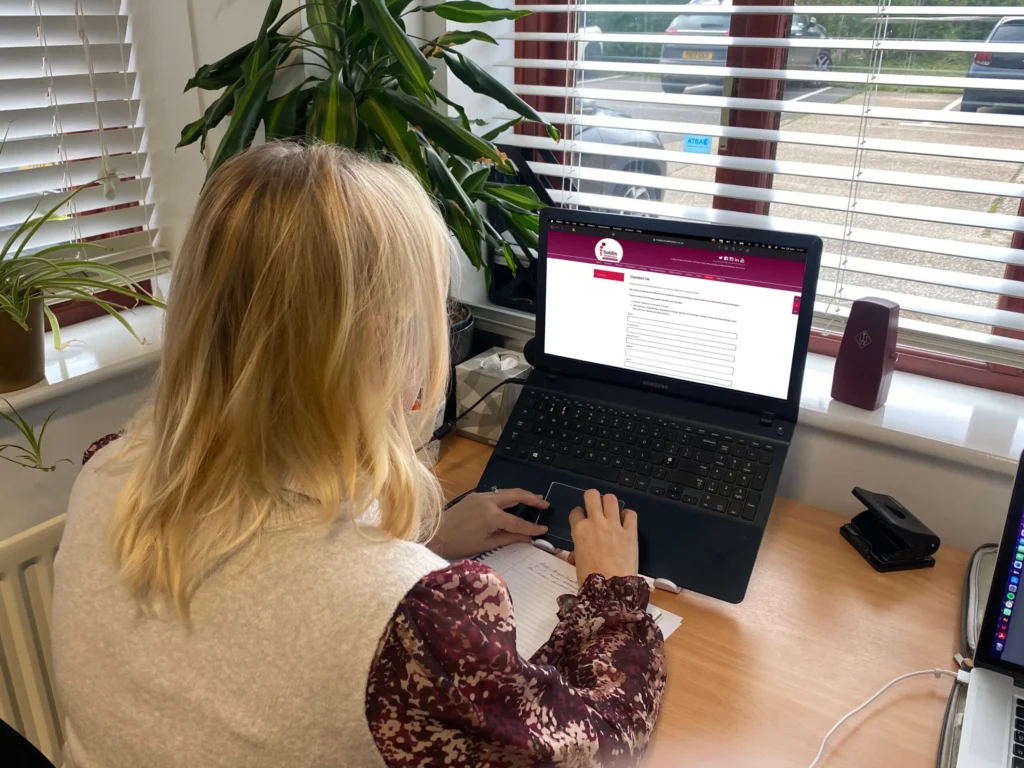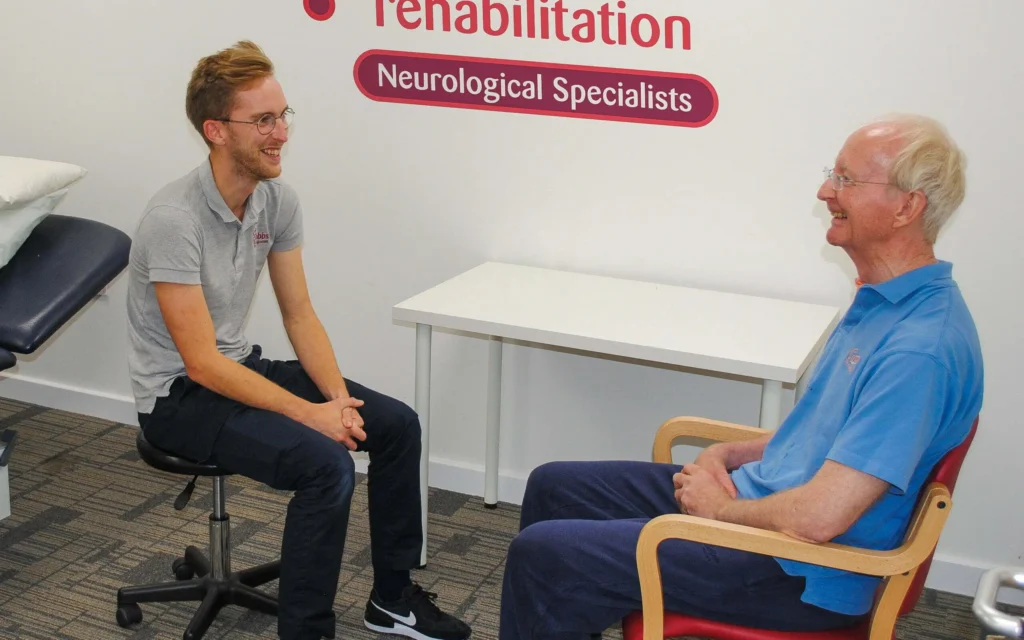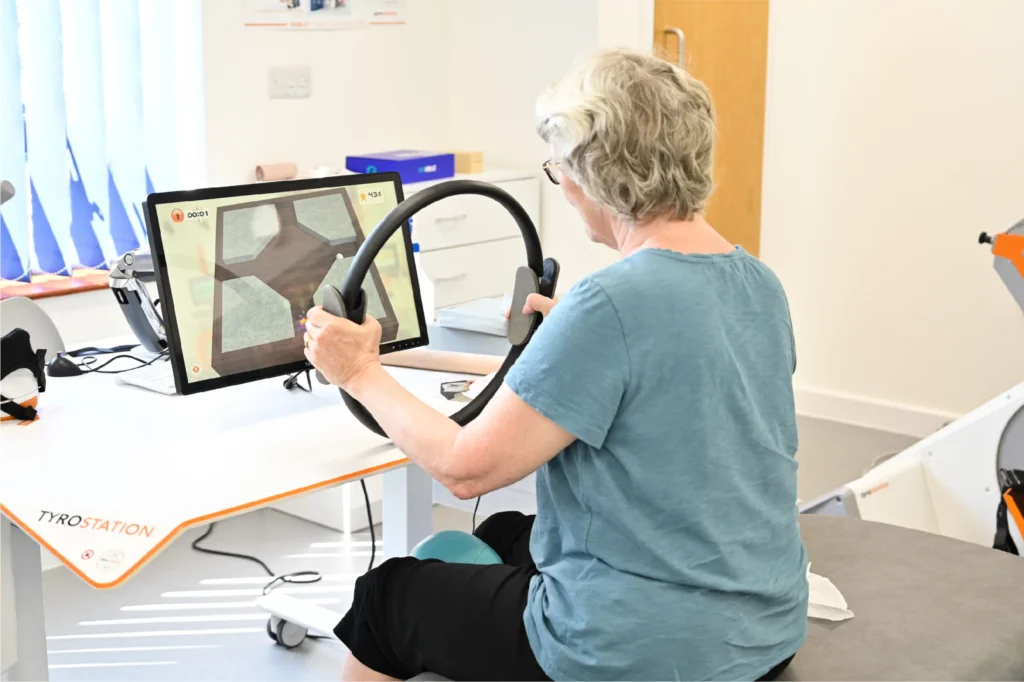Motor neurone disease (MND) is a neurological condition that damages the nervous system. Motor nerve cells in the brain and spinal cord die prematurely or do not work properly and this then affects walking, using hands and arms, speaking, swallowing and breathing.
As the nerves are damaged, the muscles that they control become weaker and stiffer. The rate of progression for motor neurone disease varies greatly from one person to another.
The causes of motor neurone disease are not yet known, but it is thought to be a number of factors, both genetic and environmental.
A highly specialist multidisciplinary team of therapists will provide a bespoke treatment plan which may include physiotherapy, occupational therapy, speech and language therapy, clinical neuropsychology and aquatic physiotherapy. They will work with you and your family/caregivers to help you manage your symptoms and maximise your potential.
Every individual with motor neurone disease presents with different symptoms and needs throughout the progression of the disease. There is a range of settings which may be appropriate depending on your therapy goals and requirements ranging from therapy sessions at our outpatient clinics, inpatient rehabilitation with or without nursing care, or community-based therapy. Each individual will be assessed by their treating therapist and have treatment tailored to their needs and goals.
Some of the physiotherapy treatments Hobbs Rehabilitation will help:
Individuals with motor neurone disease have different needs and goals depending on the progression of the condition, therefore our Hobbs Rehabilitation occupational therapists aim to improve areas of your personal care, work or leisure that are becoming difficult.
Our occupational therapists can achieve this through:
Individuals with motor neurone disease can often experience difficulties with their speech and swallowing. Difficulties in written and non-verbal communication can also be experienced. Our specialist speech and language therapists can assist with:
Motor neurone disease is a neurological condition that affects the nervous system. Motor nerve cells in the brain and spinal cord die prematurely or do not work properly and this then affects walking, using hands and arms, speaking, swallowing and breathing. It is progressive and life-shortening and can deteriorate quite quickly.
The NHS is a vital part of the process of diagnosing and managing the condition from first diagnosis to end-of-life care. NHS Clinical Nurse specialists in Neurology play a vital role in ensuring those with the diagnosis, and their loved ones, get the support they need in a coordinated and timely way. This might include, depending on the type of motor neurone disease diagnosed, adaptive equipment, both to help people breathe and/or to help them communicate and control their environment using a range of devices and software. Those with the condition often require specialist seating and profiling beds. With time they will require trained carers to assist them with a range of daily tasks. Again, all this support, including getting the funding for it, is best coordinated by your NHS team.
Clinical Neuropsychologists at Hobbs Rehabilitation have experience assisting those with motor neurone disease, and their loved ones, and can contribute to the NHS team around you in a number of ways:

Enquire today about any of our services or packages

You will be contacted to determine your needs and assessment location

Your therapist will recommend the best course of treatment

Once you have booked you will be ready to start your treatment plan.
During the assessment, your therapist will discuss your clinical history and recommend the best treatment course. Your therapist will discuss which therapy is best suited to your condition as well as consider your needs and personal goals and refer you to our wider multidisciplinary team when required.
We offer our services in inpatient, outpatient and community settings – find your nearest centre.
Alternatively, call us on 01962 779796 to talk with our team or fill out our enquiry form on our contact page.
We accept self-referrals and referrals from Medico-Legal, health and social care professionals and the charity sector.
Don’t just take our word for it – take theirs